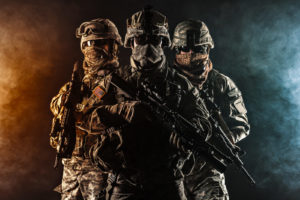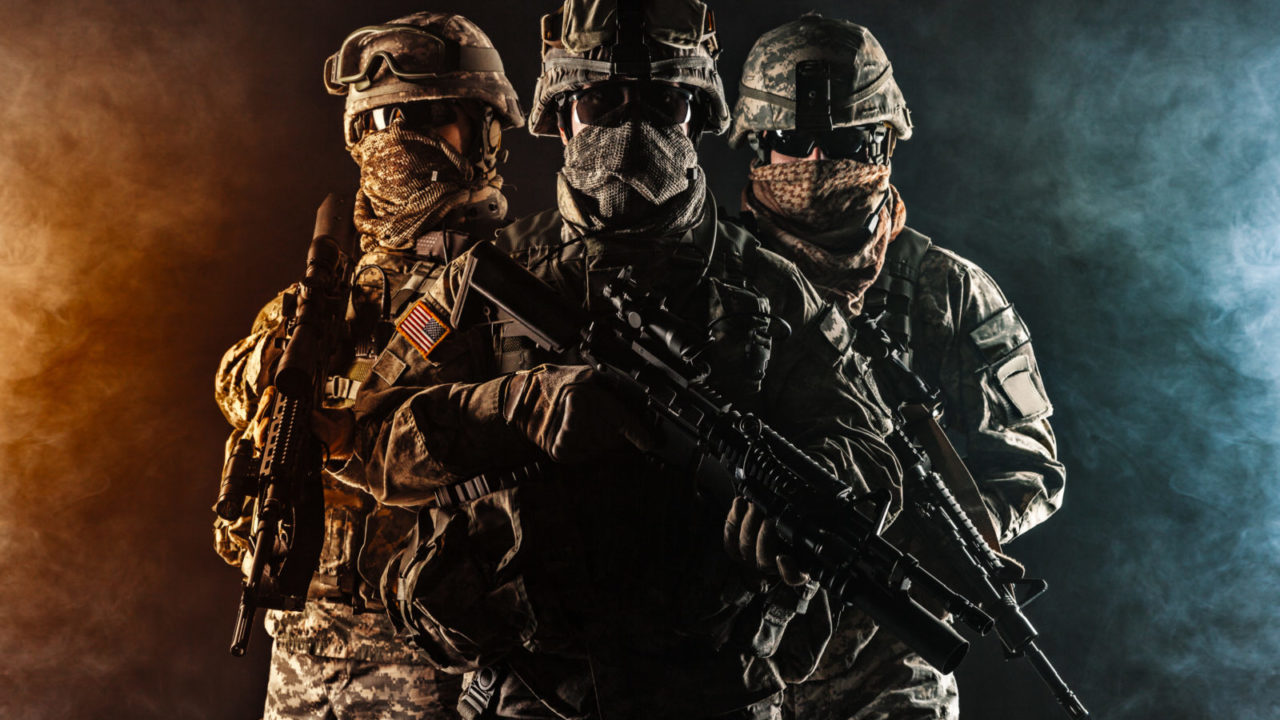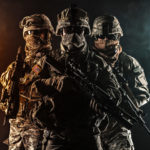This first appeared in The Havok Journal in January 2017.
________________
Author’s Note: When it comes to terrorism, U.S. foreign policy and military operations, the true nature of Islam, and the extent of Islamic radicalization, there are no shortages of opinions. As a survivor of the 9/11 attacks and a former soldier, I certainly had my own. But when it came to discussing Islam intelligently, I had more questions than answers. Frustratingly, most interviews I’ve read or seen were apologias for Islam; of course, a few were reflexively anti-Islamic shoutfests.
So it was with an eye towards conducting a challenging, clarifying conversation that I asked Sayed and Deen, two Muslim-American veterans, to sit down and talk with me. We bonded quickly, the way soldiers do, over jokes, bullshit, and some shared bitching. I was impressed with their thoughtfulness and their passion. But our goal was understanding, not agreement. I found, in their answers, cause for both optimism and concern.
This interview is hardly the final answer on many of these subjects — we spoke for three hours and we could have spoken for twelve. But hopefully, over the course of this nine-part interview, we’ve managed to shed a little more light than heat on a range of subjects that sorely need it.
This is Part 9 of a nine-part series. You can start the series from the beginning here.
_______
CPM: I’m remembering that infamous example when, just after 9/11, The New York Times ran a high-profile piece on a moderate imam in Northern Virginia who could bridge both East and West. The Times declared him someone Americans could trust as a voice of moderate Islam. Of course, that imam turned out to be Anwar al-Awlaki.
Something like that makes a lot of Americans go, “Jesus, I know nothing about these people. I can’t tell who’s good and who isn’t.”
So, what sources do you guys think Americans should trust when we want some insight into Islam or the Middle East or terrorism?
Deen: I don’t really think any sources really. Every news agency has its own slant. My advice is to watch everything and do a little bit of homework.

CPM: Is there a Muslim commentator or someone who seems to really have the pulse of the Muslim street? Somebody who makes you go, “Man I’m glad he or she’s on TV.”
Deen: Maybe Reza Aslan. I’m not a big fan of Fareed Zakaria. I really don’t like Peter Bergen.
A lot of these analysts are educated, but they don’t seem like they’re honestly trying to solve any problems. They add to either a false sense of security or a misrepresentation of things.
Like I said, a lot of people don’t know about Islam, terrorism, or counterterrorism. Americans watch these people without realizing that they are paid or part of think tanks that have their own agendas. I think maybe it’s time CNN or FOX start putting out disclaimers on some of their analysts.
CPM: Everyone’s got a bias.
Sayed: Reza Aslan can be a good source, although I have some problems with him. For example, in Islam, we don’t believe Jesus was crucified on the cross, Jesus is a prophet — we believe he ascended to heaven before the crucifixion and a murderer, a look-alike, was put in his place. Reza Aslan, as far as I know, believes that Jesus was crucified. And there are a few other things he says that I don’t agree with.
I’ve heard some pretty good lectures on YouTube and elsewhere by Suhaib Webb, Nouman Ali Kahn and Ashaki Taha-Cisse. But I’m more about books than pundits and there are three books I can recommend — two, I have read. The one I have not — but I’ve heard great things about — is Islam by Karen Armstrong.
Deen: Oh yeah, she’s a good author. She’s very good. I’ve read a few Karen Armstrong books.
Sayed: The reason I recommend her is because she is not a Muslim, so she gives a non-Muslim, objective opinion about Islam.
The second book, which I have read, is The Autobiography of Malcolm X. I think it’s a great example of how proper Islam changed a man who was radicalized by the Nation of Islam. Malcolm X is very clear that it was Islam’s fault that African Americans and other Americans were being radicalized by a perversion of Islam, because no one was out there countering NOI’s message.
The last one is a book I read when I was downrange — I was actually in the same camp as the writer. It’s called, Sunset Tales from the New Iraq and there’s four different stories —
CPM: — is it fiction or non-fiction?
Sayed: Non-fiction. And I have no affiliation with any of these authors, but I do have —
CPM: (laughing) — kickbacks.
Sayed: (laughing) Yeah, I’m in cahoots with Karen Armstrong.
But seriously, I think the books are better because they’re self-paced and they give you a much stronger foundation that a lot of hearsay on TV.
I just thought of something else. There’s this dark, dark, dark British comedy called Four Lions about four guys who want to become suicide bombers. The writer actually took some of the real dialogue from MI5, MI6 sting operations. It’s an amazing comedy and then you realize these were actual lines they pulled from radicalized people who actually wanted to do these things. It’s pretty scary, but it also makes the point about how people who want to do this kind of stuff are idiots.
Deen: As far as sources go, we need to stop bringing converted jihadists on TV and using them like spokespersons. I don’t believe that anyone who wanted to kill Americans — or any innocent people — will just suddenly have an epiphany and say, “I don’t want to do this anymore, I’m going to find out the root cause of this.” They’re just using us for a buck.
And stop bringing former Muslims who hate Muslims onto TV.
I also don’t give any credence to someone who wasn’t born in the US. A lot of the older generation was very grateful that they came here and they have a bias. They’re sometimes too pro-American. It’s good to know your deficiencies, because if you don’t know your deficiencies then you can’t fix them. If you’re too grateful that the country saved you, then you’ll sometimes put blinders on.
Not to say the older generation is not good, but they’re outdated. They don’t understand how things work. Sometimes, they’re too outwardly assimilated into this country, which isn’t a bad thing, but you can lose your identity. If you’re name is Mohammad, but now you want to be called Mo, fine, that’s great, that’s your thing — but I want to at least talk to someone who has self-worth. Don’t lose that uniqueness — that’s what makes America great, that blend of things.
I think the first-generation American Muslims need more of a platform. If you don’t give them a platform, you’re going to lose them to some of those other groups — and that’s what is happening.
CPM: That brings up even more questions, but you guys have been awesome with your time, so we’ll end it here. I really appreciate your honesty, your passion and your service to our country. Thanks for killing an afternoon to talk with me today.
_______
Chris writes regularly at The Havok Journal in addition to hosting The Weekly Havok podcast. He is a former nightclub bouncer, firefighter, corporate security trainer, and prison chaplain. He has done stand-up, been homeless for extended periods of time, had screenplays optioned, and gotten married. He was also in the military and spent 33 months in foreign combat zones, earning a Bronze Star in Afghanistan. He has written one book, edited another, and is working on a third. He can be reached at Savage Wonder.
Buy Me A Coffee
The Havok Journal seeks to serve as a voice of the Veteran and First Responder communities through a focus on current affairs and articles of interest to the public in general, and the veteran community in particular. We strive to offer timely, current, and informative content, with the occasional piece focused on entertainment. We are continually expanding and striving to improve the readers’ experience.
© 2024 The Havok Journal
The Havok Journal welcomes re-posting of our original content as long as it is done in compliance with our Terms of Use.

